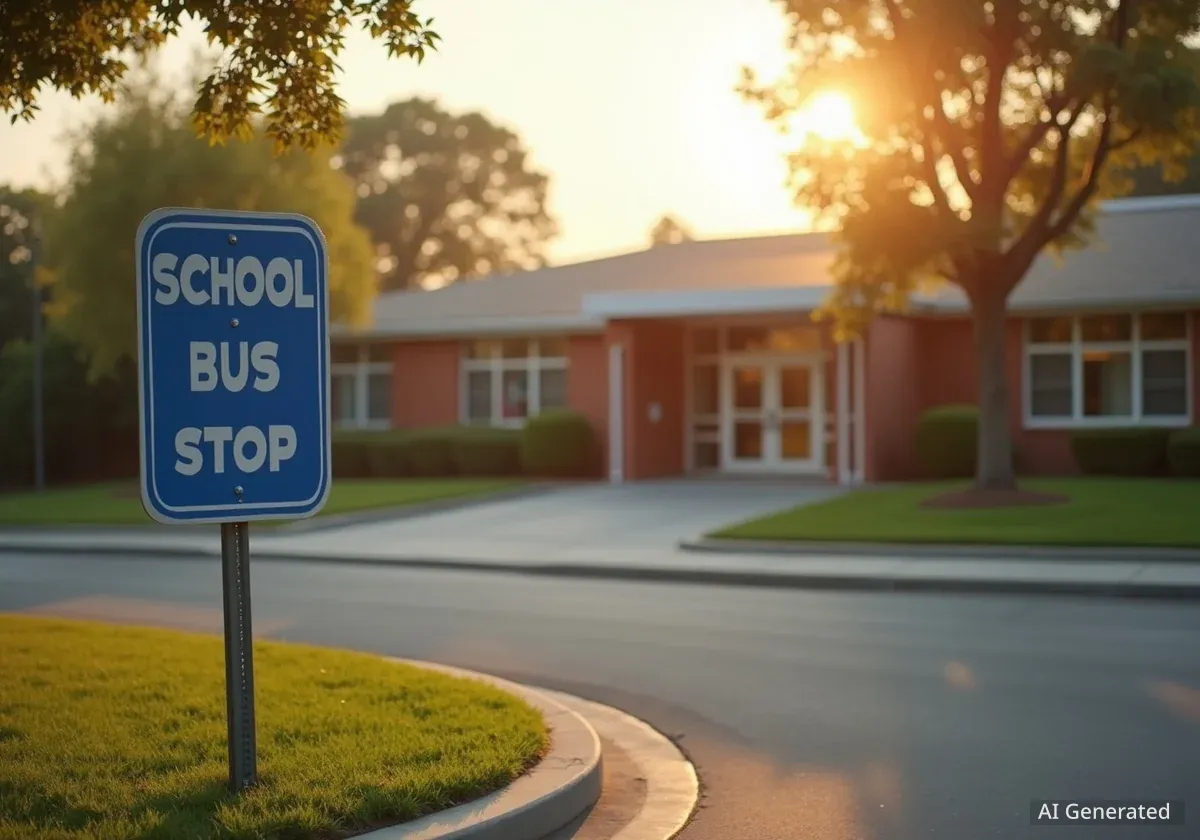A new analysis of Tennessee Department of Education data reveals that most Shelby County students receiving the state's expanded education vouchers reside in higher-earning zip codes. This information comes as the Education Freedom Scholarship (EFS) program completes its initial year, raising questions about its overall impact on public school enrollment in the region.
Key Takeaways
- Over 3,400 Memphis-area students received state education vouchers.
- Most recipients in Shelby County live in top-earning neighborhoods.
- The state did not track if applicants were previously in public or private schools.
- The voucher program provides $7,295 per student for private education.
Voucher Program Expands Across Tennessee
Tennessee Governor Bill Lee signed the Education Freedom Act into law on February 12, 2025, significantly expanding the state's school voucher program. This legislation introduced the Education Freedom Scholarship (EFS), offering $7,295 per student to attend private schools. The program aims to provide more educational choices for families across the state.
During its first year, the EFS program provided financial assistance to more than 3,400 children in the Memphis area. This marks a substantial increase in the number of students utilizing state-funded vouchers for private education.
Fact: Education Freedom Scholarship
The Education Freedom Scholarship (EFS) provides eligible students with $7,295 annually to cover private school tuition and other approved educational expenses. This funding is directly allocated by the state.
Geographic Distribution of Voucher Recipients
A recent analysis by The Daily Memphian, based on data from the Tennessee Department of Education, shows a clear trend in Shelby County. The majority of students who received EFS vouchers live in zip codes with higher average incomes. This finding suggests that the program's benefits are disproportionately reaching families in more affluent areas.
This geographic distribution raises questions about whether the program is truly serving its stated goal of expanding educational access to all families, particularly those in underserved communities. Critics argue that such programs often benefit those who already have the means to access private education.
"The data indicates a concentration of voucher recipients in wealthier parts of Shelby County," a local education advocate stated. "This pattern needs further examination to ensure equitable access."
Enrollment Impact Remains Unclear
One key aspect of the EFS program that remains opaque is its impact on public school enrollment. The Tennessee Department of Education did not require applicants to disclose their prior school enrollment status. This means the state does not know if students receiving vouchers were previously attending public schools or if they were already enrolled in private institutions.
Without this crucial data, it is difficult to assess the program's effect on public school systems. Educational experts emphasize that understanding student transitions is vital for evaluating the true impact of voucher initiatives. It helps determine if the program is drawing students away from public schools or simply subsidizing existing private school enrollments.
Background: School Voucher Programs
School voucher programs, sometimes called 'school choice' initiatives, allow state funds designated for public education to be used by parents to pay for tuition at private schools. Proponents argue they offer families more options and foster competition among schools. Opponents often raise concerns about public school funding, accountability, and equity.
State's Data Collection Gaps
The lack of information regarding prior enrollment status creates a significant data gap. This omission makes it challenging for policymakers and the public to fully understand the EFS program's effectiveness and its broader implications for Tennessee's education landscape. Transparent data collection is essential for informed decision-making.
For example, if most EFS recipients were already in private schools, the program primarily acts as a subsidy for those families. If a large number were transitioning from public schools, it could indicate a more direct impact on public system resources and enrollment figures.
- Data Challenge 1: No record of previous public school attendance.
- Data Challenge 2: No record of previous private school attendance.
- Result: Unclear impact on public school enrollment figures.
Future Monitoring and Evaluation
As the Education Freedom Scholarship program continues, ongoing monitoring and more comprehensive data collection will be critical. Understanding who benefits from these vouchers and what their prior educational pathways were is essential for future policy adjustments.
The state legislature and education department may consider implementing stricter data collection requirements in the future. This would provide a clearer picture of the program's reach and its effects on both public and private education sectors across Tennessee.
The debate surrounding school vouchers often centers on funding and equity. The current data from Shelby County highlights the need for careful evaluation of these programs to ensure they meet their intended goals and serve all students fairly.





